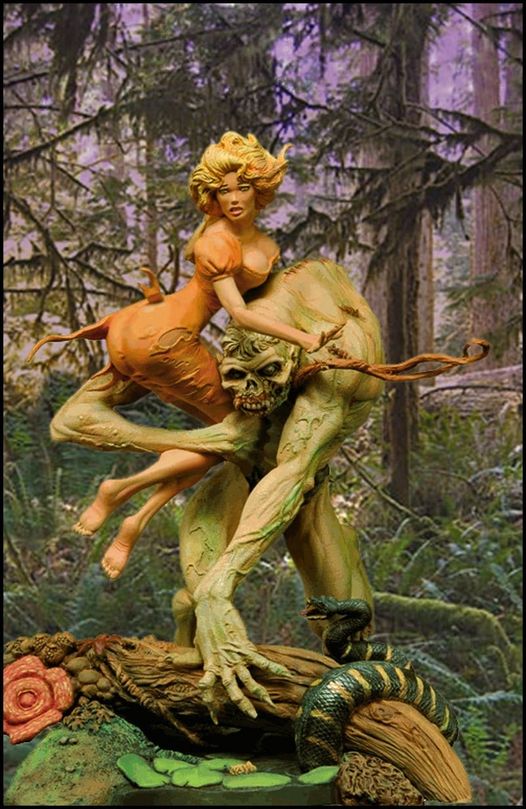The novel Frankenstein, written by Mary Shelley, was initially released in the year 1818 and is considered to be a key work in the genres of Gothic and science fiction. Victor Frankenstein, an ambitious scientist who wants to conquer death and discover life, produces a human-like creature from reanimated corpse pieces in the novel. Through letters and memoirs, Victor’s journey and creation’s effects are told. The story examines scientific ethics, monstrosity, and the dangers of playing god in late 18th-century Europe.
Ingolstadt’s dark mood, the Swiss Alps’ snowy scenery, and the creature’s bleak habitats enhance the novel’s backdrop. After the Industrial Revolution and scientific advances raised ethical problems about scientific investigation, Frankenstein is generally seen as a mirror of cultural and scientific worries. The story continues to address the effects of unbridled ambition and social rejection of the “other.”
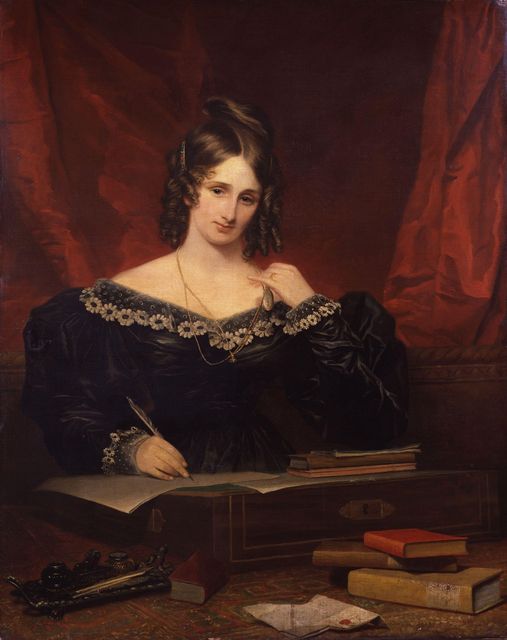
Numerous cinematic adaptations of Frankenstein, including James Whale’s 1931 remake with Boris Karloff as the monster, and modern reinterpretations in literature, film, and other media explore Shelley’s themes in fresh ways.
In Mary Shelley’s timeless classic, Frankenstein, she delves deep into the realms of modernity and moral dilemmas, confronting readers with thought-provoking questions about science, ambition, and the boundaries of morality. This critical analysis aims to unravel the layers of Shelley’s masterpiece, examining the themes of creation, responsibility, and the consequences of unchecked ambition.
As we journey through the haunting narrative of Victor Frankenstein and his creation, we explore the moral implications of playing god and the dangers of scientific progress overpowering ethical considerations. Shelley’s exploration of these themes resonates even more strongly in our modern world, where technological advancements continue to blur the line between progress and its potential consequences.
By examining the underlying messages and moral dilemmas presented in Frankenstein, we gain not only a deeper understanding of Shelley’s work but also valuable insights into the complexities of our own ethical landscape. Join us as we unearth the depths of Frankenstein’s modernity and its enduring relevance in our ever-evolving society.
Frankenstein Summary
In a letter addressed to Margaret Saville, Robert Walton, the North Pole-bound ship’s captain, reports that his crew has just found a man drifting at sea. The individual, Victor Frankenstein, made the offer to provide his narrative to Walton.
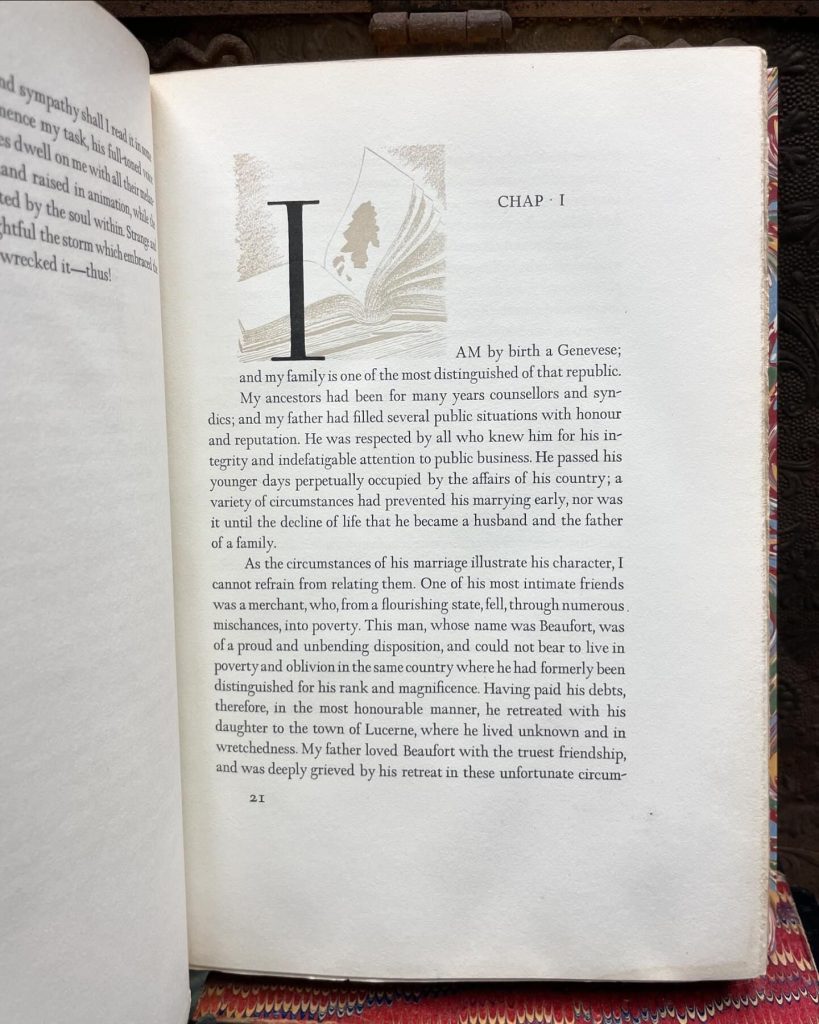
Frankenstein enjoys a wonderful childhood in Switzerland, with a loving family that even adopted orphans who were in need. One of these orphans was the stunning Elizabeth, who quickly became Victor’s closest friend, confidante, and love interest. In addition, Victor has a beautiful and compassionate best buddy named Henry Clerval of his own. The death of Victor’s mother from scarlet fever occurs just prior to the time that Victor will turn seventeen and begin his studies at the University of Ingolstadt.
During his time at Ingolstadt, Victor devotes himself wholeheartedly to the study of “natural philosophy,” immersing himself in the mysteries of life with such fervour that he even loses contact with his family. Soon after, he becomes the most successful person in his industry, and all of a sudden, one night, he unravels the mystery of existence. The knowledge that Victor possesses is put to use with the intention of establishing a new and benevolent race.
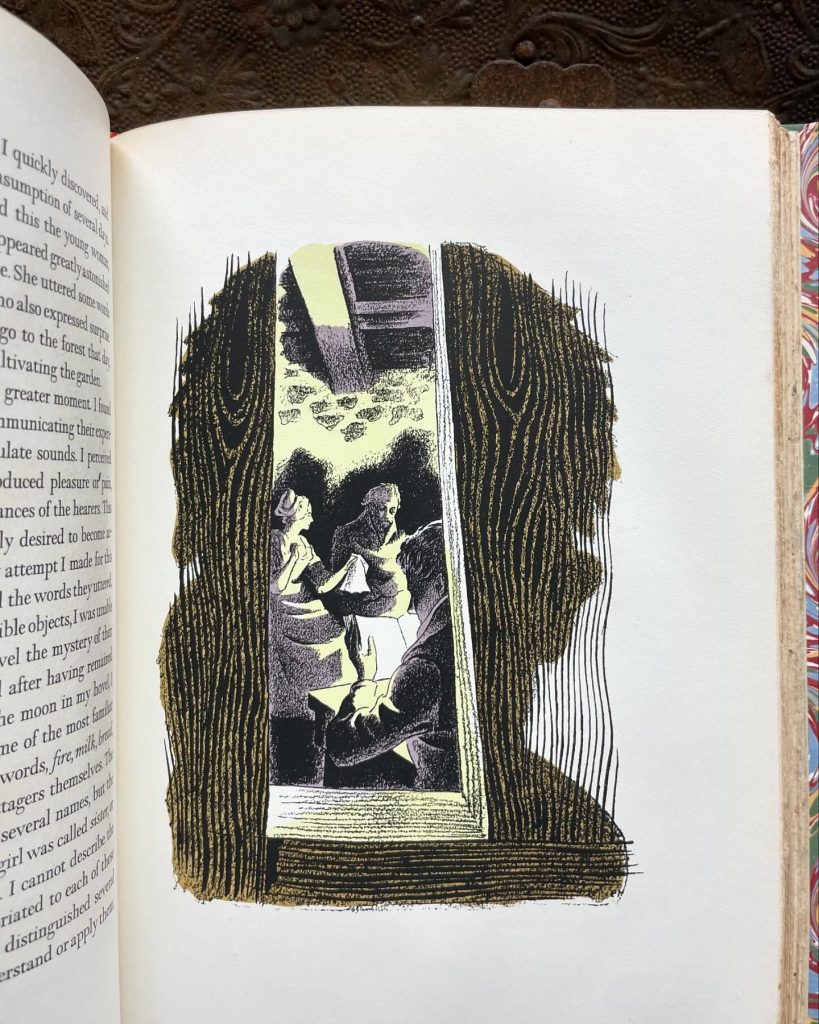
The look of his first creature, however, is so terrible that he decides to discard it after he has animated it. Victor is under the impression that the monster has vanished for good, but a few months later, he learns that his younger brother, William, has been cruelly slain. Although Victor is certain that the creature that is seen loitering at the scene of the murder is the one responsible for the crime, he does not speak out because he is afraid that no one will believe him.
In addition to the other adoptees in his family, Justine Moritz has been wrongly accused of being involved in the crime. She is found guilty and placed to death. Guilt paralyses Victor and consumes him.
The Frankensteins decide to take a vacation in order to get away from the catastrophe that has befallen them. When Victor goes on treks in the mountains, he does it in the hopes of finding relief from his pain via the splendour of nature. At some point in time, the monster makes its appearance and, in spite of Victor’s curses, begs him to listen to its story in an extremely effusive manner.
The monstrous creature explains his miserable existence, which is filled with anguish and rejection merely due to the presence of his awful look. (The monster also tells how he obtained such a high level of literacy and communication skills.) The monster believes that humanity’s unwillingness to recognise his inherent goodness and the subsequent absolute isolation that he experiences are the causes of his fury.
Upon returning to Geneva, Victor’s father conveys his desire for his son to settle down with Elizabeth. Victor has stated that he must first make his way to England. When Victor is travelling to England, he comes face to face with Clerval. In a short amount of time, however, Victor abandons Clerval at the residence of a friend in Scotland and relocates to a distant island in order to create his second monster, which is astonishingly a female.
On the other hand, Victor starts to worry about the possibility that the female monster would be even more destructive than the first one later on. At precisely the same time, Victor discovers the first creature observing him from a window while he is working. After seeing the horrible scene, Victor is compelled to eliminate the female monster. Victor receives a warning from the monster that it will “be with him on [his] wedding night.” The monster makes a vow of vengeance.
Victor disposes of the female monster’s remnants by throwing them into the ocean once he has taken them. When he finally makes it back to shore, however, he is accused of being responsible for a murder that took place on the same night. As soon as Victor learns that the victim is Clerval, he loses consciousness and continues to suffer from delusions for a period of two months. His father has come by the time he wakes up, and he is finally exonerated of the criminal allegations that were brought against him.
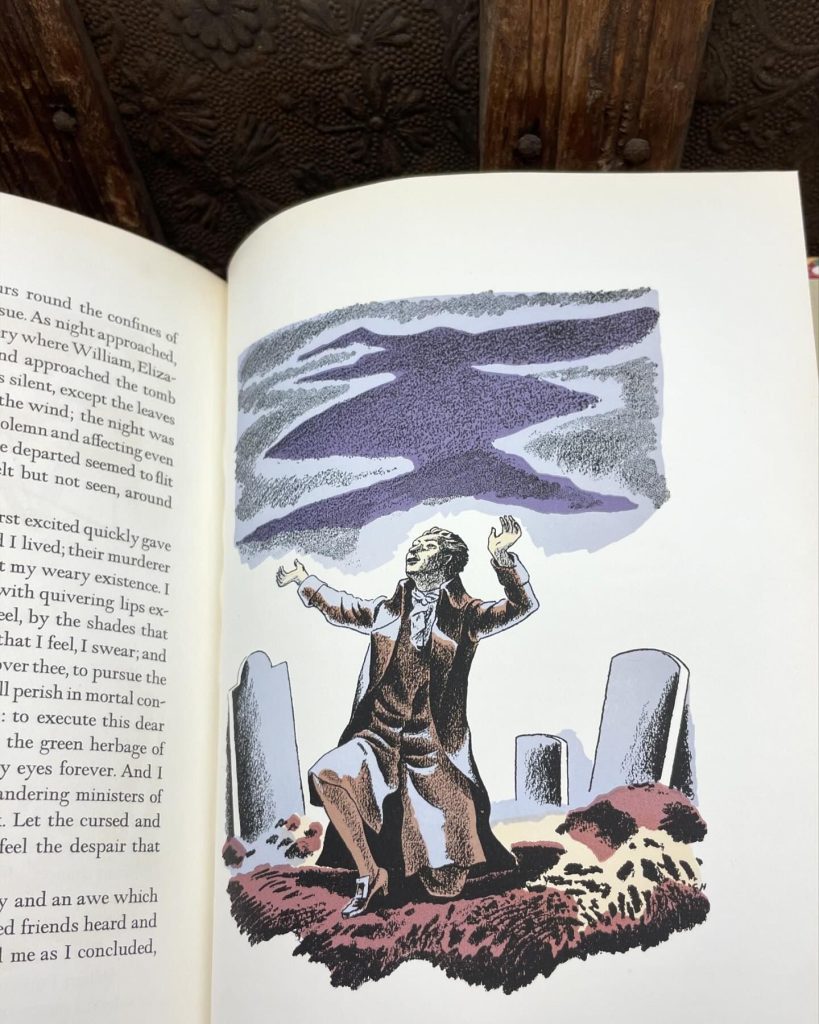
Victor and his father travel back to Geneva, where they eventually get married to Elizabeth. Elizabeth, however, is the victim of the monster’s murder on the night of his wedding. After that, Victor’s father passes away as a result of his grief. Now that he is completely alone in the world, Victor has made it his single mission to exact revenge on the monster through his actions. It is Walton’s crew who comes to his rescue after he becomes trapped on cracking ice in the Arctic, where he has been tracking the monster back home.
When he accuses the monster of not feeling any remorse, the monster responds by stating that it has endured more suffering than anyone else. As a result of Victor’s death, the monster develops a plan to exact its vengeance and ultimately take its own life.
Frankenstein; Critical Analysis
The incapacity of Victor to comprehend that his acts have consequences has been the primary source of contention throughout the entirety of Frankenstein. Victor is exclusively concerned with achieving his own objectives, and he is unable to comprehend how his actions could have an effect on other people. The monster serves as the most glaring reminder of how Victor has failed to accept responsibility for his acts, which have been in direct opposition to the natural principles that govern the world.
When Victor completely submerges himself in his studies at the University of Ingolstadt, he neglects his family and his fiancee. This is the first indication that a dispute is developing between them. After Victor has “successfully discovered the cause of generation and life,” he becomes infatuated with the idea of producing a monster. This causes the conflict to grow even more intense.
He is not bothered by the fact that he disregards his family in order to dedicate himself to his career, nor does he pause to consider what it could be like for that monster to go through the experiences that he does. His ambition consumes him to the point where he does not give any other consideration to anything else. When he quickly reacts with fear and disgust and flees out of the room after animating the monster, the rising action of his reckless quest to create life reaches its pinnacle.
This is the moment when the action reaches its peak. This scenario exemplifies the contradiction that exists between Victor and moral responsibility: he is the one who is responsible for creating the monster and bringing him to life, but when he does not like the outcome, he just rejects it.
After Victor finds out that his brother William has passed away and that Justine has been falsely accused, the tension in the situation significantly escalates. A new circumstance arises as a result of the murder, an opportunity for Victor to either take responsibility for his actions or choose not to. Rather of divulging the information that he is aware of regarding the monster, he chooses to allow Justine to be put to death, which in turn heightens the tension.
When the monster joins up with Victor in the centre of the mountain peaks, he tells him the account of all the misery he has undergone, as well as his feelings of isolation and alienation. This further intensifies the struggle. Another opportunity for Victor to veer away from his self-centred course of action is presented by the encounter that takes place between the monster and the person who created him. When Victor unwillingly agrees to manufacture a mate for the monster in exchange for the two of them fleeing somewhere distant, the plot hints that there is a possibility of a resolution.

However, the conflict is rekindled when Victor is so repulsed by this scheme that he makes the decision to destroy the female monster before it can be carried out. Once again, he does not give any consideration to the consequences of this irresponsible action, despite the fact that the monster has vowed to exact revenge. Despite the monster’s explicit comments that he is now committed to making Victor’s life a living hell by depriving him of everyone he loves, Victor is truly astonished when his buddy Henry Clerval is murdered, and then again when his fiancé Elizabeth is also slain.
This is the case despite the fact that the monster has stated that he is now ready to make Victor’s life a living hell. Following the murder of Elizabeth, the war enters its final stage, during which Victor makes a solemn promise to track down and eliminate the monster as a kind of retribution for all of the deaths that have occurred. As a result of this pledge, the conflict is partially resolved because it provides the monster with what he desires: he is now receiving the undivided attention of his creator, and the destinies of the two individuals are determined by each other.
In the course of his pursuit of the monster throughout the globe, Victor eventually finds himself in the Arctic, where he comes face to face with Walton. This brings the narrative full circle, returning to the moment where Walton’s narration was replaced by Victor’s. As a result of the exhaustion that Victor has experienced as a result of his travels, he passes away on board the ship after telling his story, satisfying his function in the narrative.
The most dramatic moment in the book occurs when Walton discovers the monster in the room, stands there and weeps as he looks at Victor’s dead body. Victor never acknowledges the part he played in causing the turmoil and tragedy that led to the deaths of a number of innocent individuals, as well as the suffering of his creation. He also never accepts the fact that he was responsible for them.
There is a difference between Victor and the monster in that the monster displays regret and self-loathing, which suggests that he has finally become more “human” than his creator. In the end, Walton is able to see and hear the creature from his own point of view, and he is able to experience “a mixture of curiosity and compassion.” The descending action of the novel comes to a rapid conclusion with the monster describing his plan to kill himself and then going off on his own to carry out his plan.
The modernity of Frankenstein: Exploring the themes of science and technology
Perilous Information
The pursuit of knowledge is central to Frankenstein, as Victor seeks to push past acknowledged human limits and discover the secret of life. Similarly, Robert Walton aims to reach the North Pole in an effort to outdo earlier human endeavours. Walton is dangerously stuck between sheets of ice as a result of Victor’s act of creation, which ultimately destroys everyone he loves. This merciless pursuit of knowledge, of the light (see “Light and Fire”), proves disastrous. Walton eventually abandons his perilous endeavour after learning from Victor’s example how harmful the desire for knowledge can be, while Victor’s fanatical hatred of the creature finally leads to his death.
Nature’s Sublime
Characters are originally given the chance to experience spiritual regeneration through the majestic natural environment, which was embraced by Romanticism (late eighteenth century to mid-nineteenth century) as a source of unconstrained emotional experience for the individual. After William and Justine pass away, for which he feels responsible, Victor is overcome with sadness and regret and goes to the mountains to get better.
Similarly, the monster’s heart feels lighter as spring arrives after a terrible winter of cold and desolation. The narrative makes clear how nature affects Victor’s mood, but when he learns that the monster will follow him wherever, the natural world’s ability to comfort him diminishes. By the time the story ends, the Arctic desert serves only as the metaphorical setting for Victor’s savage battle against the monster as he pursues it compulsively.
Horribleness
Since the monster is at the heart of the action, it is clear that this motif runs throughout the entire book. The creature, who is eight feet tall and incredibly ugly, is shunned by society. His deformity, however, stems not just from his hideous look but also from the bizarre way in which he was created—a combination of weird chemicals and stolen body parts were secretly animated. He is the result of sinister, paranormal processes rather than cooperative scientific endeavour.
The knowledge Victor used to create the monster (see “Dangerous Knowledge”) is just one of several horrific beings in the book, of which the monster is the most literal. Since Victor is estranged from human civilization by his ambition, secrecy, and selfishness, one may claim that he is a monster in his own right. He may appear normal on the surface, but his intense loathing of his creation may finally devour him, making him the real “monster” within. Lastly, the novel itself has been characterized by numerous critics as monstrous.
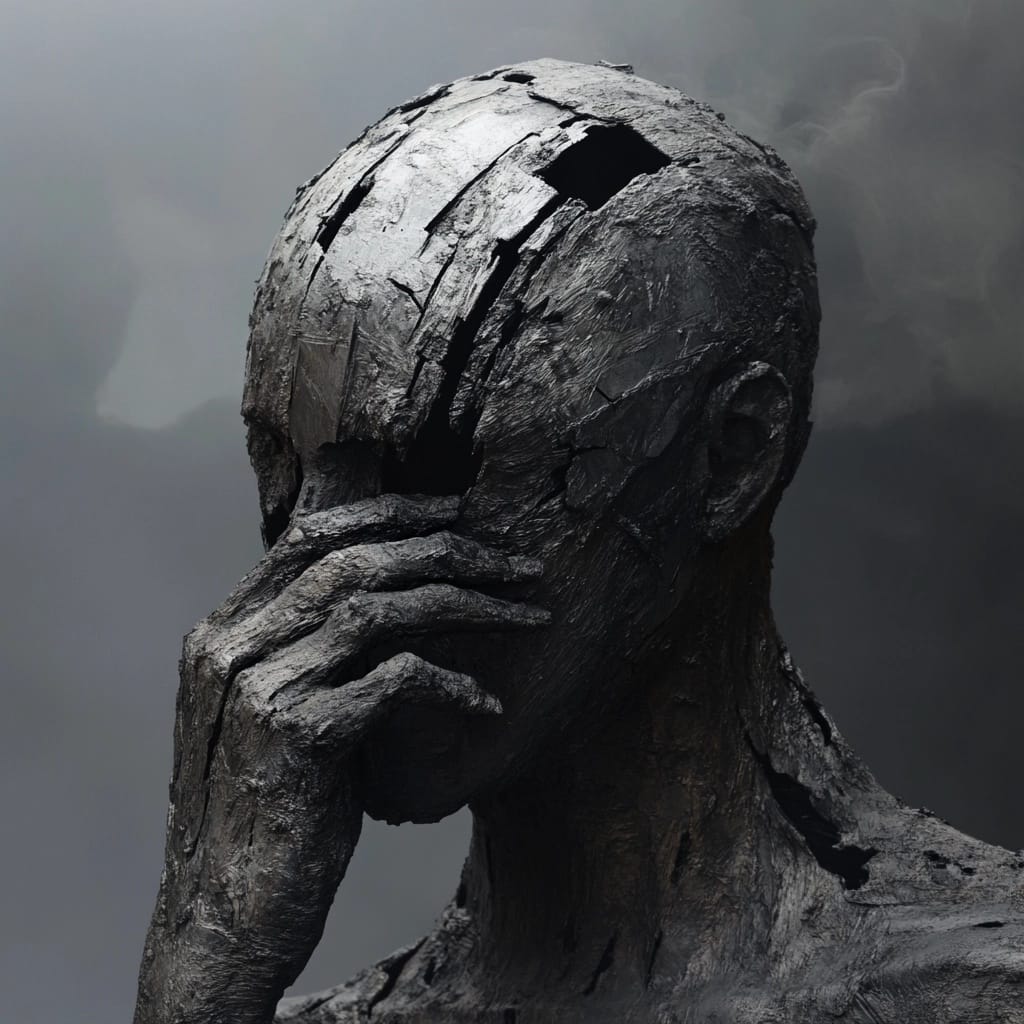
Keep it secret
According to Victor, science is a mystery that needs to be explored; once its secrets are found, they must be fiercely protected. The natural philosopher M. Krempe, whom he encounters at Ingolstadt, is regarded by him as a model scientist: “an uncouth man, but deeply imbued in the secrets of his science.” Until Walton hears his story, Victor’s entire preoccupation with generating life and his fixation with eradicating the monster are kept secret.
The monster’s hideous look forces him into solitude, while Victor stays hidden out of guilt and humiliation. For both, Walton is the last confessor, and Walton’s writings immortalise their terrible relationship. Victor breaks free from the oppressive secrecy that has destroyed his life by disclosing everything right before he passes away; similarly, the monster uses Walton’s presence to establish a human connection in the vain hope that someone will finally comprehend and sympathise with his wretched life.
Family
Family ties are shown in Frankenstein as being essential to human existence. The Frankensteins and the DeLaceys are two of the most idealised families that make an appearance in the book. Characters losing their ties to their families or not having any at all are mostly responsible for the tragedy and suffering in the book. “If the study to which you apply yourself has a tendency to weaken your affections[…]then that study is certainly unlawful,” Frankenstein says, attributing his terrible decision to create the Monster to his seclusion from his family.
The Monster attributes his misery on the absence of a family as well: “I was dependent on none and related to none.” The Monster claims that his lack of familial ties is what led him to turn to murder as he is attempting to convince Frankenstein to make him a companion. However, because Frankenstein is his father, the Monster does have a family. Frankenstein had an idea before he created the Monster: “No father could claim the gratitude of his child so completely as I should deserve.” Rather, the Monster and Frankenstein attempt to destroy one another throughout the entire book.
Distancing
According to Frankenstein, societal estrangement is the root source of evil as well as its remedy. “My protectors had departed, and had broken the only link that held me to the world,” the Monster states clearly, indicating that his isolation from humanity had turned him into a murderer. My bosom was filled with sentiments of wrath and retaliation for the first time. But his killings only make him feel more alienated.
Frankenstein also experiences alienation, which leads to poor choices and serves as a result of those choices. Frankenstein is working alone in a “solitary chamber, or rather cell,” when he develops the Monster. His ambition has grown dangerously as a result of being “solitary,” but this seclusion is already a punishment in and of itself: his lab feels like a “cell.” Because he is unable to inform anyone about his creation, Frankenstein grows even more estranged from those around him after creating the Monster.

